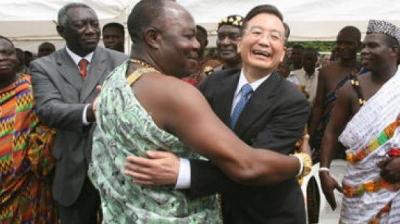China and Liberal Values in International Relations
China and the West have different views on the role of liberal values in international relations. Western countries promote the concepts of democracy, human rights and liberal market economy – which express key liberal values – at the international level and strive to establish and strengthen international norms that are derived from these concepts. Although liberal values and related norms play a significant role in the contemporary international system, China’s leaders have found ways for their country to exist and even thrive in such an environment, while at the same time keeping political and economic liberties highly constrained at the domestic level.
Still, as China becomes a global power, the question should be asked as to whether China might use its influence to diminish the role of liberal values at the international level. This Clingendael Report explores how China’s rise as an influential global actor relates to the position of liberal values in international relations, in particular to Western policies of promoting liberal values. Given the still relatively early stage of China’s emergence as a global power, this question will be approached from a theoretical perspective, by means of identifying and discussing relevant theories, concepts and views.
This report finds that the relationship between the rise of China and Western interests in norms that are based on liberalism in global governance is ambiguous. Such norms have been crucial to the West in general, and the United States in particular, in building the post-war international order according to their national interest. Still, the peaceful evolution approach – in both the economic and the political spheres – is of vital importance to Western powers’ foreign policy at large, and these tools of Western power rest to a great extent on justification and legitimization by the normative framework of liberalism in global governance.
In this sense, it can be said that the fact that China’s views on liberal values are gaining a greater share in the global marketplace of ideas negatively affects Western and, in particular, American interests. Even though China’s peaceful rise narrative embraces the coexistence of multiple ideologies in global governance, and therefore does not constitute a threat to liberalism as communism did, it may still be a cause for conflict. China does not present liberalism with a counter-ideology, but it does oppose the promotion of liberal values through its counter-norm of international diversity. Such a struggle over norms-setting would most likely take place at the level of multilateral governance organizations, both within traditional organizations and between these and recently established alternatives in which China has a high degree of influence.






